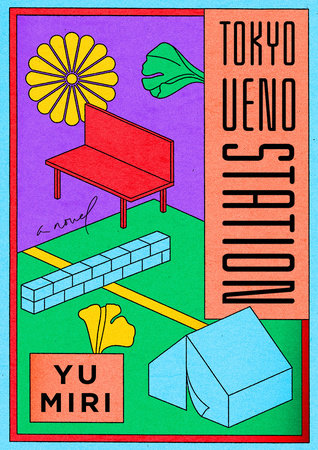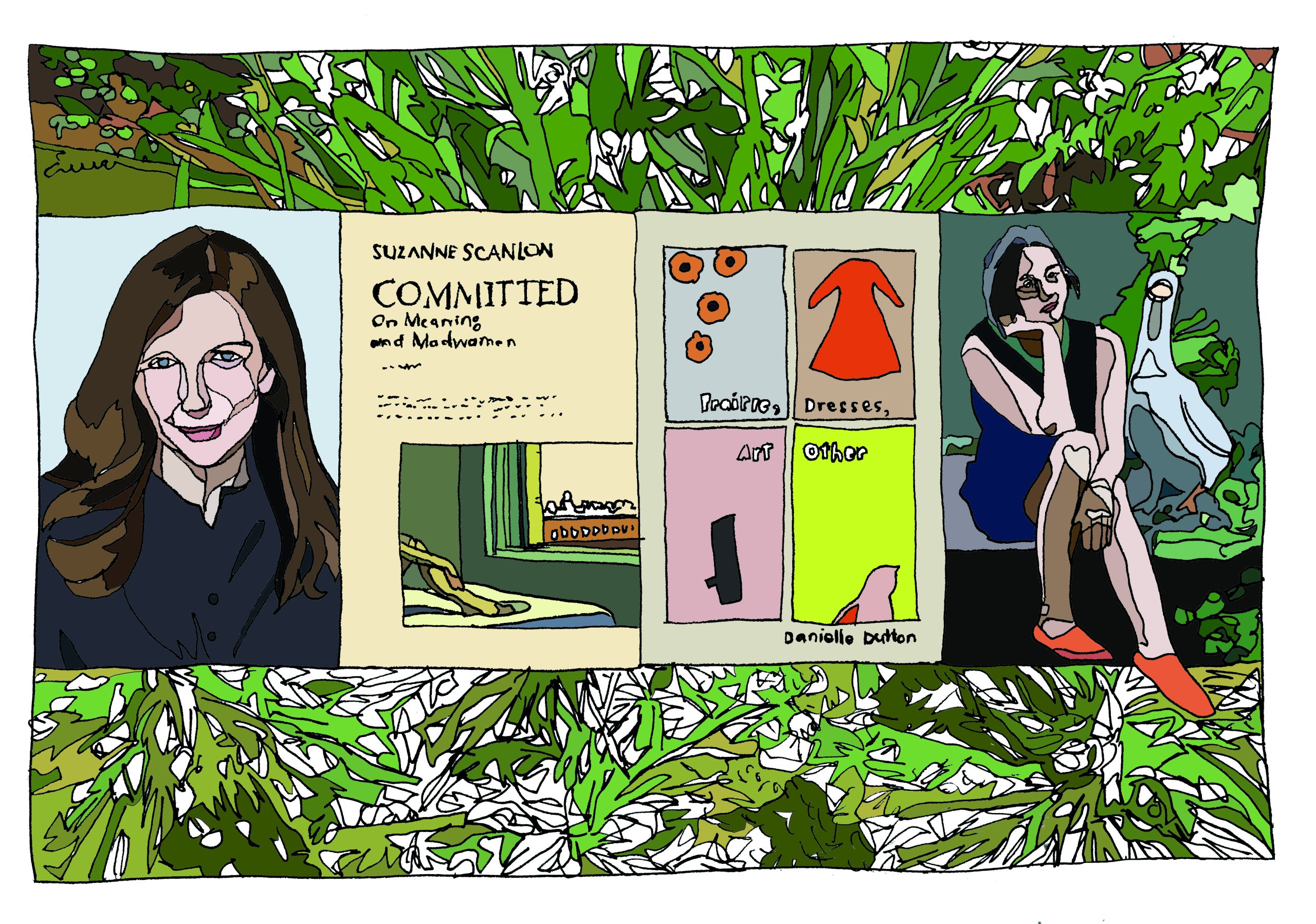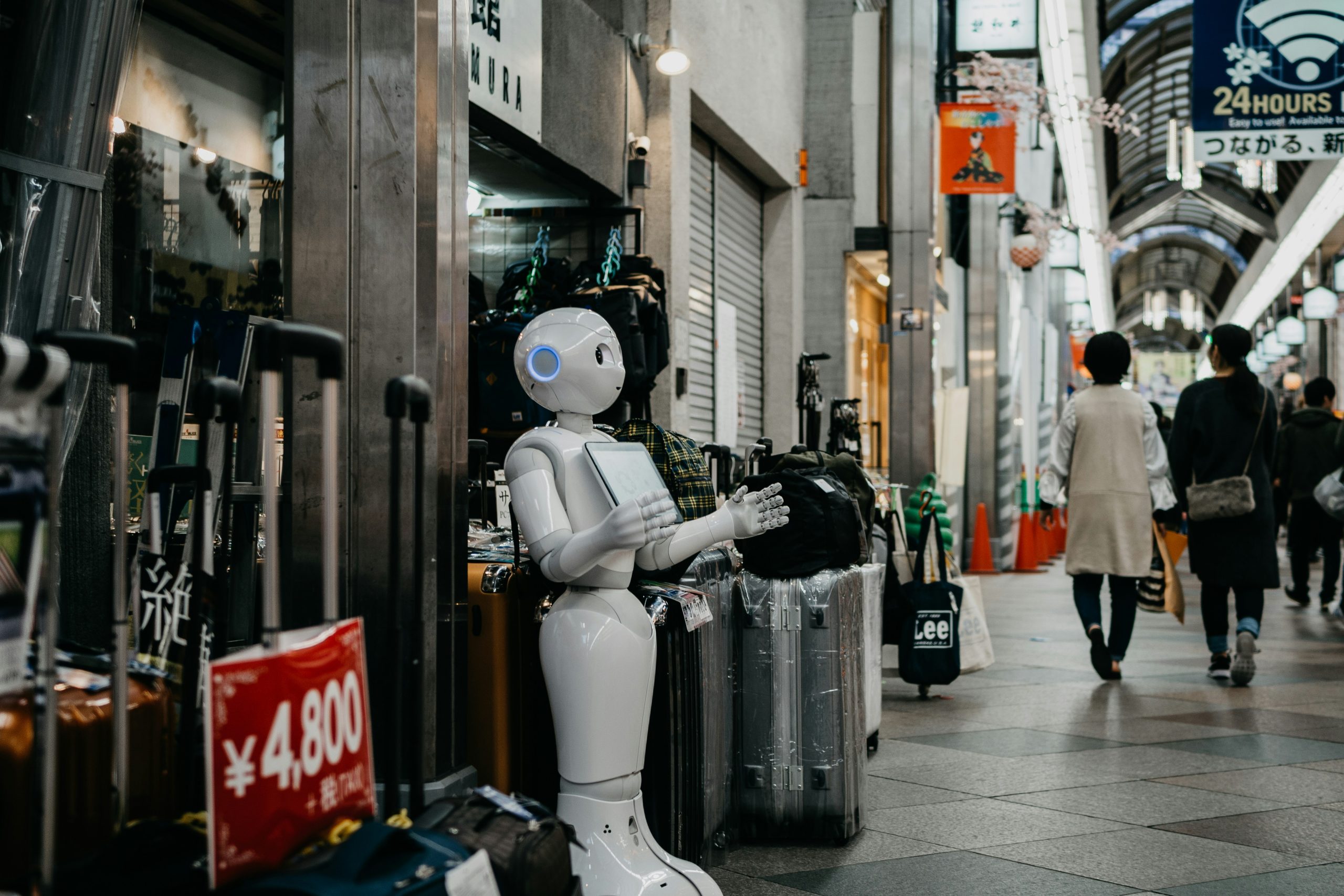Interviews
A Ghost Haunts the Tokyo Olympics
Yu Miri's "Tokyo Ueno Station" highlights inequality in Japan

“I used to think life was like a book: you turn the first page, and there’s the next, as you go on turning page after page, eventually you reach the last one. But life is nothing like a story in a book. There may be words, and the pages may be numbered, but there is no plot. There may be an ending, but there is no end.”
Yu Miri begins her exploration of the life of Kazu, a manual laborer from the country’s Fukushima prefecture, with this meditation from him as he walks the afterlife, which turns out to be exactly the (homeless) life he left behind. Yu Miri chills the reader’s blood over and over with lines like this: “I did not live with intent, I only lived.”
Kazu came to Tokyo to build the city for the 1964 Olympics, the games which delivered a gleaming Tokyo, a mere two decades after World War II, to the world’s eyes. Kazu’s story is the backstory of the city’s builders, invisible and marginalized. He experiences the untimely loss of his son, and later his wife, and ends up in the homeless village in Ueno Park. Kazu’s fate is contrasted by a series of connections with the imperial family, who exist in a much loftier realm.
Tokyo Ueno Station’s final scene devastates in a dream-like fashion. Without totally giving it away, the crescendo involves the 2011 tsunami in Kazu’s hometown. The 2020 Summer Olympics, which was scheduled to begin in July but has been postponed to 2021 with the global pandemic, shadows the book. Kazu’s contemporary counterparts toiled as he did to enable the games.
With the gracious assistance of the novel’s translator Morgan Giles, I interviewed Yu Miri—who is a part of the country’s Korean minority population—about listening to the dead, her personal (and political) history with the Olympics Games, and what pandemic life is like in Fukushima, which is still recovering from the 2011 nuclear accident’s devastation.
J.R. Ramakrishnan: “I thought that once I was dead, I would be reunited with the dead…But then I realized that I was back in the park.” In terms of afterlives, this seems like the worst. How did this novel begin for you?
Yu Miri: The truth is, Tokyo Ueno Station is the fifth in my series of novels involving the Yamanote Line [a subway line in Tokyo]. In the first in the series, the short story “The Inner Loop of the Yamanote Line,” which was published in 2003, a woman who’s thinking about jumping in front of a Yamanote Line train goes into a bathroom in the station and masturbates, then gets on the train, gets off at another station and masturbates again. I depicted the destinationless impulses toward sex and death (eros and thanatos) of this protagonist who is shut out from life. And in this story, the protagonists of the four other novels in the series that I went on to write make their appearances.
I’ve depicted the directionless lives and deaths of characters whose diverse lives radiate out from the ticket gates of Yamanote Line stations, who get knocked out of life and, passing through the gates heading toward the center of the circle, find themselves standing on a precipice—the edge of the station platform.
The second in the series, Goodbye Mama, is about a mother who has separated from her husband and is raising a preschooler on her own (set at Takadanobaba Station, Toyama Entrance). The third, Gotanda Station, East Entrance is about a man who works at a securities company; he and his wife do not speak to each other at home. The fourth, Meeting, is about a high school girl who runs a website recruiting people for a group suicide. And the fifth is Tokyo Ueno Station, with a homeless man from Fukushima as the protagonist.
The Yamanote Line is a loop line that runs around the center of the capital, Tokyo; it’s a double circle, actually. The circle that runs clockwise is on the outside and is called the “Outer Loop,” while the line that runs counterclockwise on the inside is the “Inner Loop.” At the center of this double circle, right in the middle of the donut hole, is the palace where the Emperor lives; it is surrounded by moats, a construction that makes it impossible to approach it or look inside.
There are two themes that deeply influence my Yamanote Line series. The first is suicide, which every year over 20,000 Japanese people lose their lives to. The other is the multiple spheres that arise from the Imperial system, and from the Emperor himself who is designated in the first article of the Japanese constitution as “the symbol of the State and of the unity of the People.”
Japan has one center and multiple spheres, which creates a huge gap between rich and poor, fortunate and unfortunate. Tokyo Ueno Station is the story of the suffering and death of a homeless man, born in Fukushima on the same day as the Emperor, who had to leave home for work as a young man due to poverty, losing his home and family.
The four protagonists in the earlier works in my Yamanote Line series all stand on the platform, a precipice between life and death. I didn’t write scenes where they are hit by trains. In the few moments while the train is approaching, they might hesitate and be pulled back toward life. I decided to let the reader’s imagination guide what happened to those characters next.
JRR: You begin the novel, as you end it with sound. In between, there are snatches of overheard conversations, sounds of the rain, the station’s sonics, and then finally the sirens and roars of the book’s ending. As a reader, I could hear so much!
YM: It makes me very happy to hear someone from a different country who speaks a different language say that they could hear so much.
Japan has one center and multiple spheres, which creates a huge gap between rich and poor, fortunate and unfortunate.
I think that the role of a writer is to listen to the voices of the voiceless. It’s my job to listen to the voices of the spirits of those who die in the midst of discrimination, poverty, and loneliness, unable to bring anyone’s attention to their suffering.
We can’t save the dead, but by listening, we can give comfort to their spirits. By listening to their suffering, we can bandage their burning, bleeding skin, no matter how many tears that bandage might have or how patched together it might be.
JRR: You take us to Tokyo’s fringes. The homeless community has work, interests, pets, and suffers threats of crime. How did you imagine these characters?
YM: What first inspired this novel was seeing a homeless man in the bathroom at Ueno Station 18 years ago. Afterwards, when I’d talk with the homeless men living in Ueno Park, one of them told me this: “You have a house. We do not. The haves don’t understand how the have-nots feel.”
I couldn’t find any words to say back to him.
Since then, I kept going back to Ueno Park and listening to the stories of the homeless men living there, but those words—the haves don’t understand how the have-nots feel—stuck in my heart like a thorn I couldn’t remove.
Then, on March 11th, 2011, the earthquake, tsunami and nuclear disaster happened. I started visiting the area around the reactor a month later, in April. From March 2012, I hosted a radio show on the emergency radio station in Minami-Soma, Fukushima, an area which was part of the designated evacuation zone due to the nuclear disaster; on my radio program, I interviewed 600 local people about their experience of the disaster.
Through listening to the stories of people who had been forced to evacuate due to the tsunami and nuclear disaster, I was again faced with “the difference between the haves and have-nots,” with the issues of poverty and discrimination that exist in Japan, known globally as a rich country.
“The haves don’t understand how the have-nots feel.” That certainly might be the case, but the pain of those who are discriminated against isn’t something that can be gained as information from the outside; actually feeling that pain in your own body and to live (and die) with it is something that can be made real through writing a novel or reading one.
I think if you read Tokyo Ueno Station and it feels to you like the lives and struggles of the homeless are incredibly real, then that’s because I’ve written a novel not as one of the haves but as one of the have-nots, that I was brought up in poverty with discrimination, and this novel is based on empathy with the homeless.
Right now, we’re all told to “stay at home” as one of the measures touted to prevent infection during this pandemic—indeed, this has become a keyword globally—and I just think, well, you’re only speaking to people with homes. These words must sound awfully cruel and ironic to those without.
JRR: Kazu works as a laborer on the sites for the 1964 Tokyo Olympics. The world would have been cheering the start of the 2020 Olympics this July—without much thought to the people like Kazu who did the work this time around—if it were not for the global pandemic. How do you feel about the event’s cancellation?
YM: In Japan, it was presented not as a “cancellation” but as a “postponement” to 2021. I’ve been opposed to Tokyo holding the 2020 Olympics from the beginning.
It’s my job to listen to the voices of the spirits of those who die in the midst of discrimination, poverty, and loneliness, unable to bring anyone’s attention to their suffering.
This is because the demand for building materials for the Tokyo Olympics and the construction of infrastructure such as roads have caused the price of construction materials to jump throughout Japan, and this has also resulted in a shortage of construction workers for civil engineering projects. And as a result, the recovery and reconstruction of the Tohoku coastal area, which was the area affected by the earthquake and tsunami, has obviously been delayed.
To start with, the official name of the nuclear power plant that caused the accident in Fukushima on March 11, 2011 is “Tokyo Electric Power Fukushima Dai-ichi Nuclear Power Station.” As the name implies, all the electricity generated by the nuclear power plant was supplied to the Tokyo metropolitan area and was not used in Fukushima Prefecture. The cause of the accident lies in the way people live in the metropolis of Tokyo—it’s clearly there, in the lifestyle of urban residents who use electricity like hot water, but even when such a serious accident occurred, Tokyo still looked at Fukushima’s reality as somebody else’s problem. And unfortunately, very few Tokyo residents know that, as of January 2020, there are still over 41,000 evacuees from the nuclear accident.
I would like to see the huge amount of money that we plan to invest in the Tokyo Olympics be spent on the reconstruction of the Tohoku coastal area, as well as for the tsunami victims and those displaced by the nuclear accident.
JRR: The last time a Tokyo Olympics was cancelled was in 1940. I read in an interview with (the novel’s translator) Morgan Giles that your grandfather was a marathon runner who might have participated in that event and that your next novel to be translated into English, The End of August, is based on your family’s history in Korea and Japan. Could you give us a brief preview of it?
YM: My grandfather was born and raised in a small town called Miryang in Gyeongsangnam-do, South Korea. He was a long-distance runner on the Japan National Team in Korea, which was then a colony of Japan. He was likely to get a spot on the team for the Tokyo Olympics, which was scheduled to be held in 1940, but then the Olympics was canceled due to World War II.
The Korean Peninsula was liberated from colonial rule by Japan’s defeat in the war, but the joy of independence was covered over by ideological confrontations. Due to the Korean War that broke out in 1950, Miryang, where my grandfather’s family lived, became a battlefield where residents informed on and killed each other. My grandfather’s 23-year-old brother, who was a leader of the student movement, was hit in the leg while running in the schoolyard and taken away by the police; his whereabouts are still unknown.
My grandfather was also accused of being a communist and was imprisoned, but just before his execution he broke out of jail and escaped to Japan on his own. My grandmother boarded a small fishing boat with her four children, including my mother, and smuggled them into Japan as refugees.
When my grandfather, who due to the war ran off with just the clothes on his back and lived a life with what seem like constant emergency crash landings, realized that he had cancer and was going to die soon, he went back to the small town in Korea where he was born, and he died there at age 68.
The End of August is a long novel that follows in my grandfather’s footsteps throughout his life as an unknown long-distance runner. I am convinced that my grandfather’s difficult life is tied in the present day to the hardships of many who are almost crushed by the struggle between countries.
In the conflicts created by the innumerable differences of religion, race, ethnicity and ideology, we are letting go of the ideal senses of freedom and equality.
Do we go from this enclosure out into the light, or do we choose to strengthen the walls of our enclosures and live in the dark?
JRR: You live in Fukushima. Would you tell us what life is like there right now? I can’t begin to imagine how the pandemic must feel to survivors of the nuclear disaster.
YM: I live in a town called Odaka, part of Minami-Soma, Fukushima. Odaka is about ten miles north of the Fukushima Dai-ichi reactor that caused a level 7 nuclear accident on March 11, 2011, in the former “exclusion zone” where, due to the accident, the population once dropped to zero. The evacuation order was lifted on July 12, 2016, but only 3,663 inhabitants have returned (from a population of 12,842 before the nuclear accident).
I’m running a bookstore for the locals in a part of my home, located a 2-minute walk from Odaka Station on the Joban Line. In the area where I live, even before the coronavirus, I rarely pass by others when I’m walking or running.
However, even in the areas affected by the nuclear accident, there are repeated announcements from disaster preparedness loudspeakers installed around the town, telling us we should refrain from going out to “to protect your own life and the lives of your loved ones” and to spend time at home. When a person whose connections with others were cut off by the nuclear accident loses their few points of contact with others, what happens to them?
The most unbearable suffering is loneliness.
In the emergency public housing where the elderly people who lost their homes in the tsunami and nuclear disaster live, the daily exercise they look forward to in the courtyard every morning, the tea times in the common room, and the individual visits by social workers have all been canceled.
An act “to protect your own life and the lives of your loved ones” is to have contact with others so that you do not feel isolated, in my opinion.
The most unbearable suffering is loneliness.
The magic phrase “stay at home” is correct when it comes to preventing the spread of coronavirus. But when I imagine the insides of all the homes where residents of the area affected by the nuclear accident are staying, I wonder if that phrase might be inappropriate.
Because in this town, filled with empty houses and vacant lots, there are lots of people isolated in the houses they returned to. On April 8 this year, in the midst of the pandemic, an 87-year-old man and his 58-year-old daughter’s bodies were found in a house not far from mine. Their cause of death wasn’t coronavirus. According to the police report, they both died of suffocation. The house was locked from the inside, no evidence of a third person’s presence was discovered, and inside the house there was a suicide note, they said.
Fukushima is currently facing the issue of these solitary deaths and suicides. As of May 31, there were 2,307 deaths in Fukushima Prefecture related to the disasters, far exceeding the 1,830 direct deaths due to the earthquake and tsunami. Among the related deaths, 115 people committed suicide; 12 people took their own lives last year.
I am depressed and frightened.
In Fukushima, the recommendations to “stay at home” and practice “social distancing” may put people in mental and economic distress, and might cause more “related” deaths than direct deaths due to the coronavirus.
The human soul suffocates without interaction. Interaction means being acted on by others, or acting on others. There is no greater joy than making others feel joy, enjoyment, and healing with your own words and actions.
This is an “intimate” experience in which one responds to the call of others by leaving the self, interacting with the souls of others, penetrating the depths of each other’s emotions, and breaking the boundary between oneself and others.
Before the second wave of the pandemic locks down cities around the world again, we have to think about how we can build “intimate” relationships with people who are isolated.









